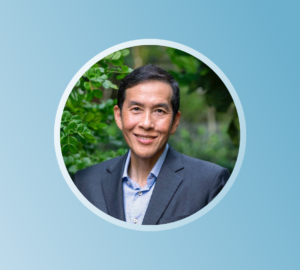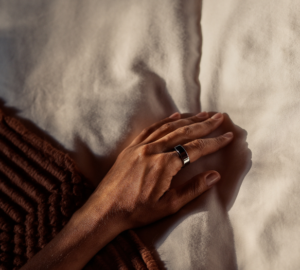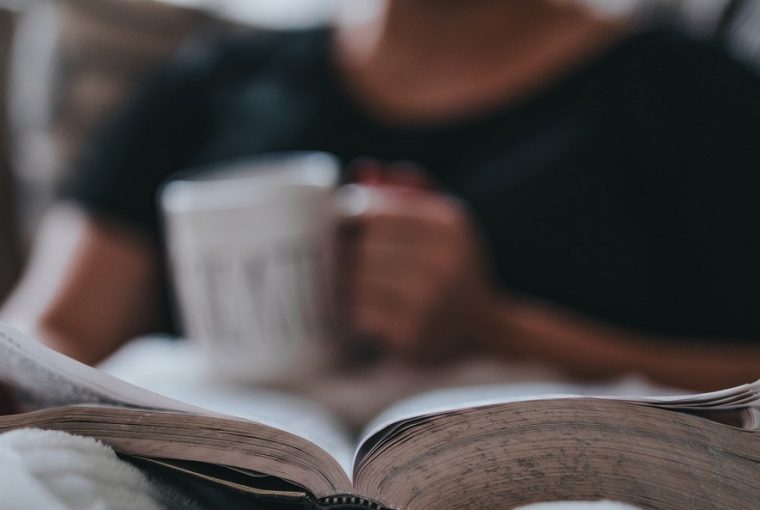“I’ve always had trouble clearing my mind and battled anxiety each time I went to bed. I was tired of not feeling refreshed each morning, so I decided that I needed to make a change. One late-night, insomnia-fueled YouTube binge presented me with a lifeline: Oura”
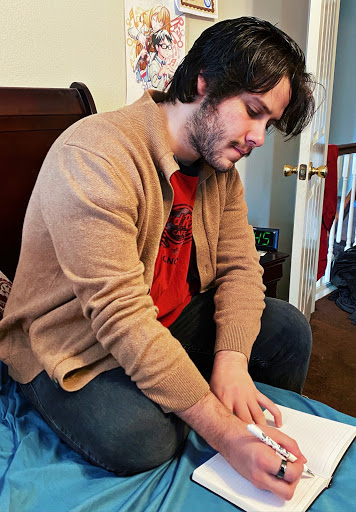
Some say your college years are the best of your life, but they can also be some of the most stressful. Jobs, debt, classes, relationships—sleep often doesn’t make the to-do list.
Gabriel is a college student from Southern California and has experienced the strain of a packed, turbulent schedule first-hand.
“I’ve never been able to fall asleep easily, but don’t necessarily want to be a night owl. My attempts to balance my classes, assignments, and family has always made me forget one important person: ME. My mind always seemed to hijack my sleep schedule, and I often found the clock move from 1am to 4am in a matter of seconds.”
Gabriel knows that his specific collegiate situation doesn’t apply to everyone, but highlights that it’s not about one person’s life vs. another’s.
“. . . we all have lives, which means we have so many things pulling us in every direction—it can get overwhelming and easy to lose yourself among the chaos.”
When you have a hectic schedule, it can be difficult to even think about adding self-care to your routine, but, as Gabriel tells us, it should be a priority.
“. . .I needed to make a change. One late night, I ran across a video by Matt D’Avella, a popular YouTuber, about lucid dreaming and sleep improvement. He discussed the importance of making time for good sleep, and mentioned the Oura Ring as what he uses to keep sleep top of mind. I realized the time for change was now and decided to take a chance on this sleep tracking wearable.”
Change is never easy. Changing your entire routine can be even more daunting, but Gabriel soon learned that, “. . .with ups come downs and with downs come ups.”
“The first thing I check in the morning is my Readiness Score. I know with my story you’d expect me to check my Sleep Score immediately after waking up, but I am more interested in seeing how ‘ready for the day’ I am. I find this part of the app the most important because I can count how many hours I slept, but it’s more difficult to understand what those 6 hours did for my body.”
Below is an example of the “downs” Gabriel endured in his first couple weeks using Oura.
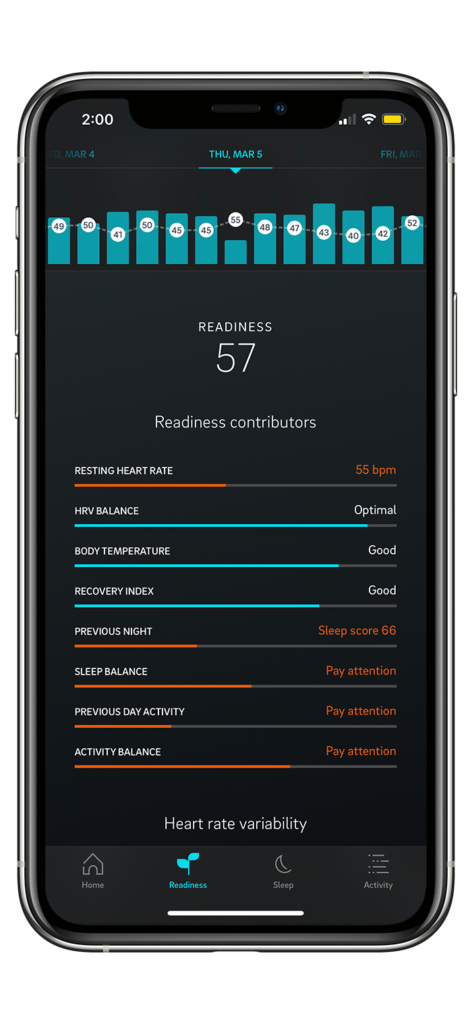
Gabriel recalls his initial thoughts when faced with Readiness stats like these:
“I’m not going to lie, it was pretty difficult to not give up right then—no one wants a failing grade. But, unlike my literature classes, there wasn’t an overworked professor determining my scores. It was, and is, just me and my body. That really helped.”
After making some changes and sticking to his goal of waking up each day energized, he started to experience more and more “ups.”
“I just wanted to get an 80 [Readiness Score]. I knew it would be tough, but setting a goal gave me motivation, which is not a word often used with sleep.”
After a month with Oura, he did it.
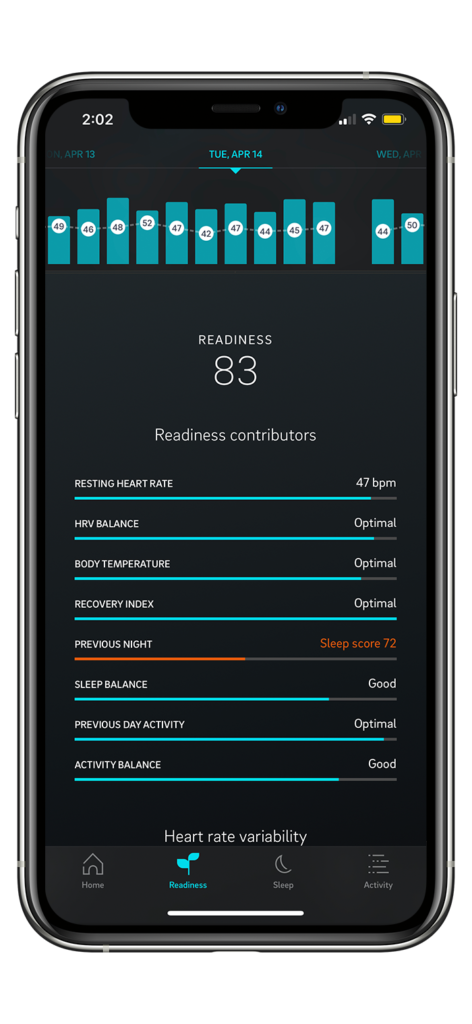
“With Oura I’ve begun to understand my sleeping patterns on a new level. I didn’t realize just how erratic my sleep was until I started monitoring it.
Gabriel’s Key Tips
- “Oura has helped me see patterns like drinking coffee too late in the afternoon actually hinders my sleep performance (wow, shocker, right?).”
- “The same goes for exercising too late. Oura has motivated me to adjust my workout schedule, to include timely recovery—leading to a healthier mind and body.”
- “I’ve even learned to turn off my phone before bedtime as a way to avoid blue light consumption.”
- “And if I could leave someone with a single tip to help combat mental strain, it would be to meditate before bed—making use of Oura’s Moment Feature has genuinely helped me through the tougher nights.”
Gabriel is still working on getting that score up even more, and he’s hoping to end his next month with a 90. His mental stress meant he was never able to fall asleep and stay asleep easily, but, with his newfound understanding of his own body, he is adjusting his choices and finding what works for him. In just his first month, Gabriel has begun to calm his mind, find some peace, and get some quality sleep.

